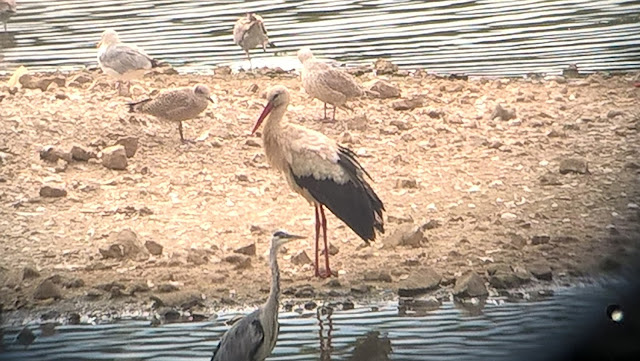Quite a lively day. Here's a picture story:
As usual day started off at the yard, sorting out the green teams for the day to head out in our local area. Here's one of our latest ventures- creating biofuels for the energy market.
Then back to the obs to sort out the moth trap. Good numbers of Ruby Tiger, Silver Ys and Knot Grass last night.
Lozotaeniodes formosana- the first for the year
Black Arches- what a beauty
Then into town for supplies- all supposed to be from companies that are pro people and nature
Then at the obs wildlife gardening tidying things up and watering the plants
Loads of interesting bits in the wildlife garden- first time I've seen this miner on Rowan
Then got a call from Marcus from the reserve saying he might have a Blyth's Reed Warbler. Went over there to check it out then another call saying he'd got a White Stork!
Looks totally different to what it did a few days ago- same bird? No rings either! The plot thickens.
Now back at the obs eating steak and chips waiting for Dom Mitchell to come and twitch the stork before it gets dark.


















































